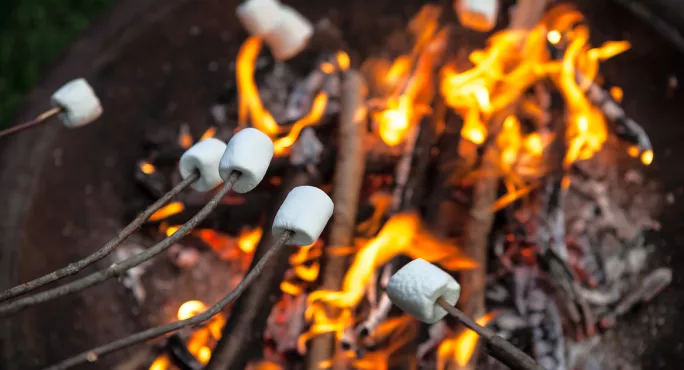Late in 2020, I joined my primary school in Aberdeen as the new headteacher. It was a challenging time to start at a school, with all the uncertainty of Covid-19. Like all schools, staff meetings were online, classes were operating in bubbles and face-to-face access with parents and carers was very limited.
With a school roll of over 500 and 50 members of staff, I spent November and December getting to know the school community and spending as much time as I could outdoors with different classes. One of my first priorities was to encourage more outdoor learning and, in December, we managed to work with outdoor specialists - fires and marshmallows were involved.
After eight weeks in school, the return in January saw classes return to online learning for the majority, with around 50 children attending our hub in the school. This challenge, however, turned into an opportunity. Every Wednesday in the hub became “outdoor expedition day”, led by myself with a small team of support staff, an outdoor specialist and our PE specialist.
We worked together with the children to set up a “base camp” each Wednesday. At the start, we modelled three different stations with different challenges. These ranged from den building to snow painting to obstacle courses. There were always Kelly Kettles and fires and, each week, we tried out different things to cook including marshmallows, popcorn, smores and hot chocolate.
At the start, what really struck me was how difficult the children found it to work as a team. For over a year, most of the time these children had either been sitting in rows or learning online, with very few opportunities for meaningful collaboration or teamwork. It was almost like watching preschool children engage in solitary or parallel play. And they also found it really challenging to direct their own learning.
But most striking was the actual joy in their learning. Expedition day on Wednesdays soon became the most anticipated day. The children came back into the school buzzing with excitement and left with rosy cheeks, enthusing about their outdoor day. “That was the best day ever in school,” we’d be told.
The positive wellbeing benefits of the expedition days extended to me, and the team of adults. The days were energising and allowed us to build relationships with each other and the children in a way that hadn’t been possible indoors.
Over the weeks, the outdoor team grew bolder and the activities more ambitious. The children started to have a more meaningful voice in planning and delivering. And the solitary and parallel play transformed into collaboration and teamwork. I was also struck by the inclusive nature of the activities and how some of the children who, in the past, had displayed challenging behaviour in school were totally engaged in their activities.
The children in the hub became the first pioneers for our expeditions. In March 2021, as the younger children returned to school, they became the expedition leaders for our first expedition: Monster March (see here).
As the whole school returned, everyone was keen to become involved in the expeditions, and they are now the key driver in our curriculum. Yet, the learning flows indoors and outdoors - as the expeditions provide meaningful, exciting and relevant contexts for all areas of the curriculum.
Jenny Watson is headteacher at Dyce Primary School, in Aberdeen




